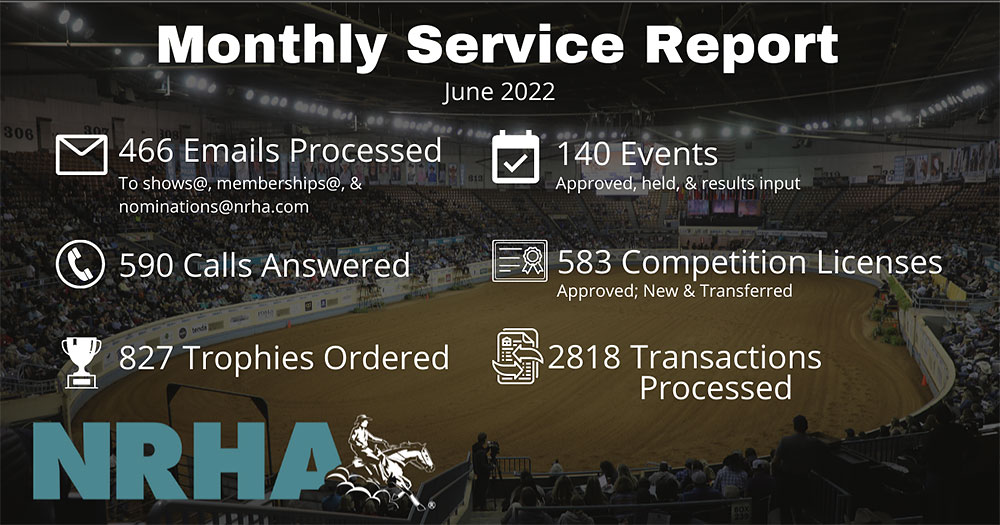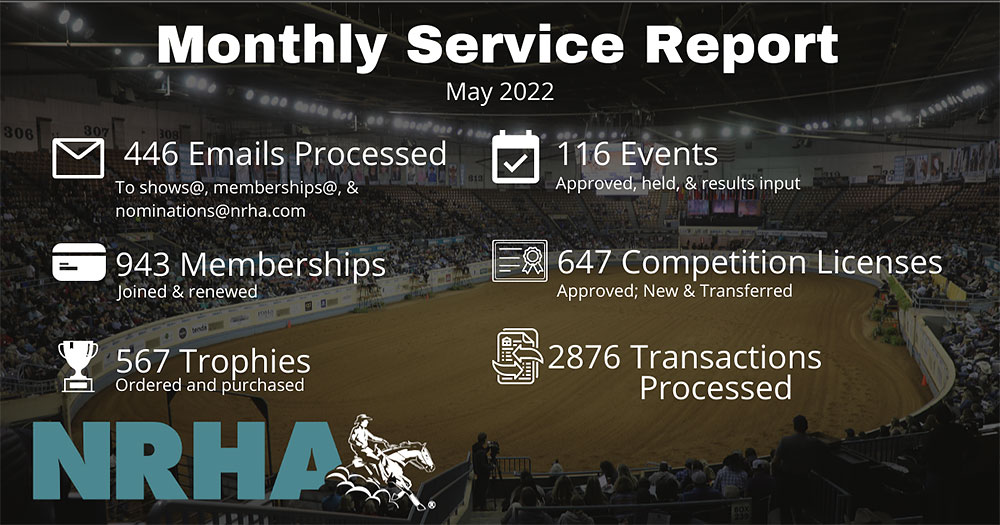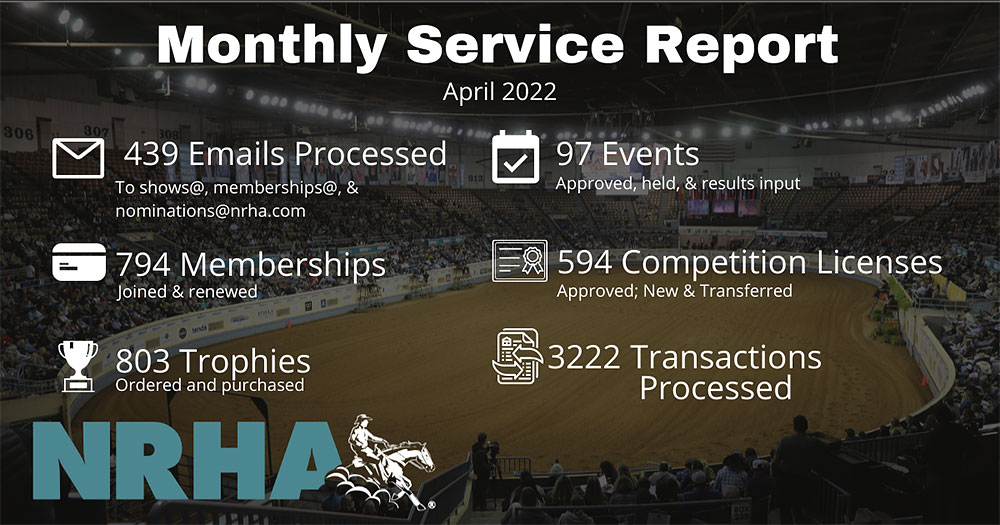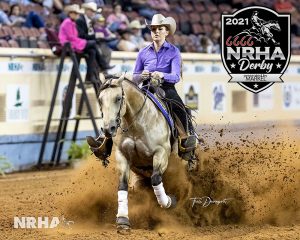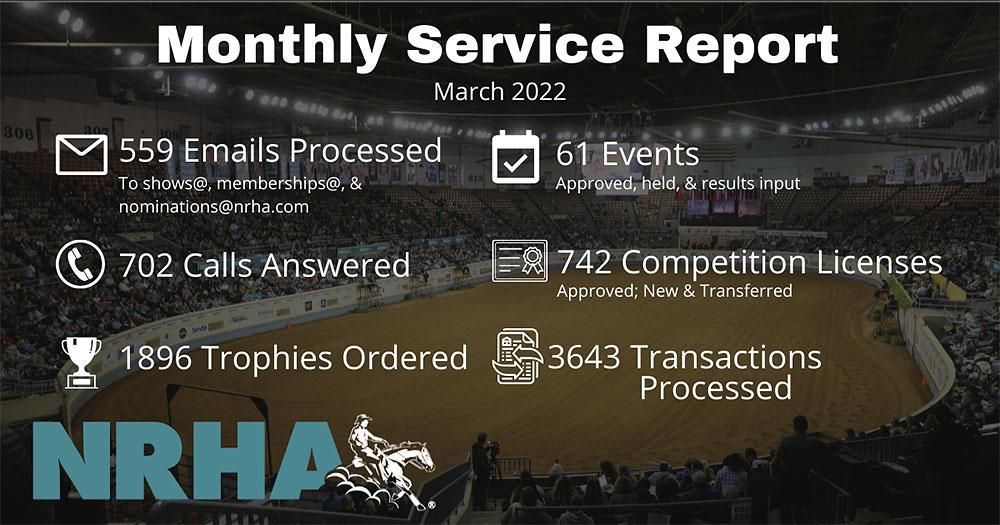In view of all the comments on social media regarding the recently approved updates to the NRHA Animal Welfare and Medications Policy, I felt that it is time for me, as NRHA President, to clear the air and give a factual account of how this decision came to be and why.
In May of 2021, the NRHA Executive Committee identified animal welfare and the need to update our Animal Welfare and Medications Policy as a top priority for the Association following an increased number of positive medications results at NRHA-owned events.
Over the past 14 months, there has been thoughtful conversation and deliberation coupled with diligent, thorough research and consultation, including with legal counsel and leading industry experts.
The executive committee worked alongside the NRHA Board of Directors and other advisory committees to develop several drafts of the updated policy which went to a roll call vote last week.
The current policy for penalties, which took almost six years of work until it was approved in 2015, was essentially a policy that contained rules but no consequences for those who knowingly broke those rules. The only penalties were letters and fines, most of which were entirely insignificant. Even worse, after a year, the probationary phase reset, so everyone’s slate was wiped clean.
Since then, there have been zero updates to the policy. Zero.
This was never the intention. There was always supposed to be a transition to increased penalties and testing to align with our industry peers.
Instead, we had exhibitors who repeatedly broke our rules because they could with no repercussions. If a horse tested positive, their name was never publicized, and they got to keep their title, purse money, and prizes. They essentially got away with a slap on the wrist, and no one would know.
Additionally, when you do not raise the medications testing fee for seven years despite rising inflation and a booming industry that has seen an explosion of entries and events, you cannot raise the funds needed to test properly. As our testing is funded today, the fees only provide enough funding to test about 15–20 events in North America annually. I think we’d all agree we’d like to do more.
The question now faced by our leadership was “how do we get these drugs eliminated from our industry for the welfare of our horses and for the integrity and fairness of our competitions?”
It was clear it was the right thing to do to try to come up with stricter guidelines. In the long run, that would be best for our industry.
It is also important to understand that the industry was totally split on this from the beginning—from the extreme of those who wanted no medications policy at all—to those who wanted zero tolerance.
I’m not trying to change minds here. Everyone has their own opinions and views. I am trying to get the membership to understand that this was not a simple decision and not a matter of a simple vote. Any change required a 67% supermajority approval.
Like the industry, the board was split between the people who wanted the policy and those that were against it.
We did not have the support to go to no allowance for Romifidine (Sedivet) at this time. It is as simple as that. We were faced with some unfortunate but very likely scenarios if we did not get the support we needed to enact some changes.
One being that no changes would be approved. Again.
If we did not get any changes approved, the Association would be taking significant steps backward, and we would be right back at square one.
Let me make this clear: the goal of the Association is to eventually get to an animal welfare and medications policy that has no allowance for sedatives or tranquilizers.
But, sometimes you have to take little steps to get to the big steps. Sometimes, those first steps are the hardest.
In order to get any changes approved, we had to compromise. That compromise came in the form of allowing a small dosage of Romifidine.
Personally, I own a lot of horses and currently have over 30 in training with eight different NRHA Professionals. I will not be signing permission for the use of the drug on any of my horses. The decision to use it will be between the exhibitor, owner, and veterinarian, all of whom are required to sign off on its use.
Going forward, the Animal Welfare and Medications Policy will be reviewed annually so we hopefully never find ourselves in such a dire situation again. We will also see a huge uptick in testing at our owned events, NAAC, and AA Events. We know this process will take time, but we know we are on the right path to an appropriate policy.
As you can clearly see, there are significant improvements made to the penalty portion of the policy when you compare the “old” policy to the “new” policy. I encourage every member to study this closely and educate themselves on the charts.
Current Penalty Chart:
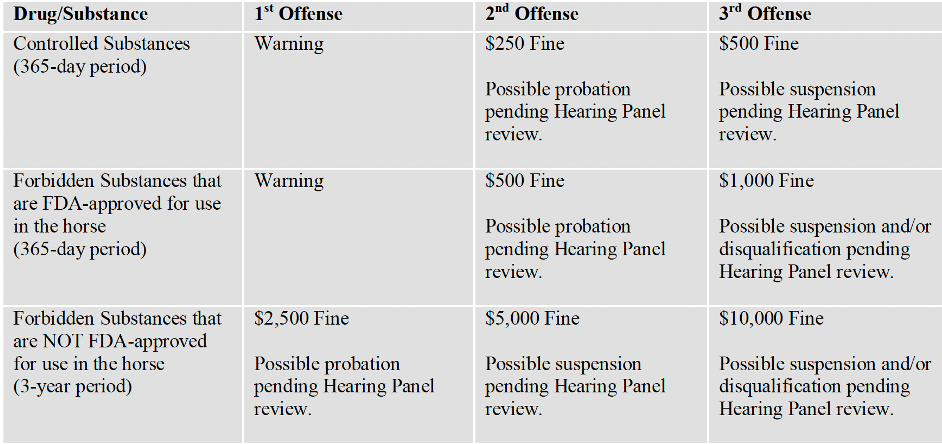
New Penalty Chart:
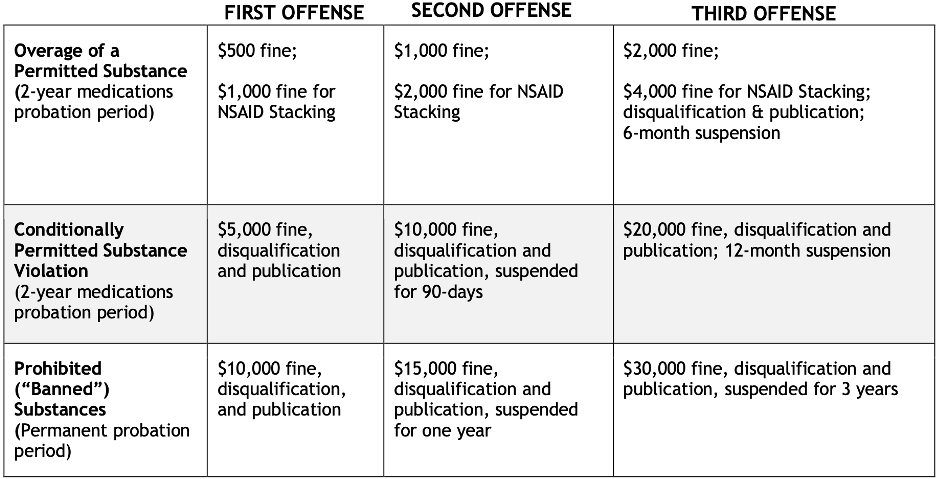
I just cannot stress enough the importance of understanding that this decision was not easy, but we truly feel it is best for the industry to start holding people accountable for their actions.
Sincerely yours,

Rick Clark
NRHA President
